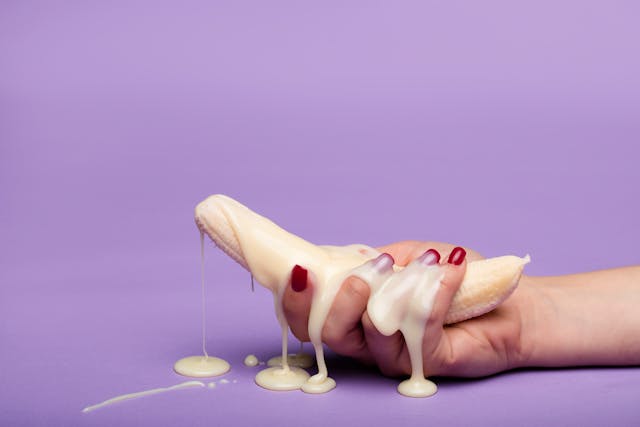Premature ejaculation (PE) is one of the most common male sexual health concerns, significantly impacting confidence, relationships, and overall well-being. In its most severe form, intercourse may last less than one minute—far shorter than most men or their partners anticipate. Left unaddressed, PE not only affects reproductive health but can also lead to anxiety, stress, and relationship strain. The good news is that with timely intervention, many men can regain control and enjoy lasting intimacy.
1. Recognizing Severe Premature Ejaculation
- Rapid Ejaculation: Consistently reaching orgasm within one minute (or even seconds) of penetration.
- Difficulty Controlling Ejaculation: Feeling unable to delay orgasm, even if you consciously try to slow down or stop.
- Emotional Impact: Frustration, embarrassment, low self-esteem, or avoidance of sexual intimacy.
- Partner Dissatisfaction: Partners may feel unfulfilled, which can create additional pressure on the relationship.
If these symptoms sound familiar, it’s important not to ignore them. Early recognition and intervention improve treatment outcomes.
2. Common Causes of Severe Premature Ejaculation
- Psychological Factors
- Excessive Stress or Anxiety: Work pressures, financial worries, or relationship conflicts can heighten arousal and shorten ejaculatory latency.
- Performance Anxiety: Worrying about sexual performance often leads to a “rush to climax.”
- Emotional Fatigue: Depression or emotional exhaustion can disrupt normal sexual response.
- Physical Contributors
- Hormonal Imbalances: Low serotonin levels in the brain are linked to faster ejaculation.
- Prostatitis or Prostate Inflammation: Inflammation can sensitize nerves and accelerate ejaculation.
- Long or Tight Foreskin (Phimosis): Excessive penile stimulation may occur if the foreskin is too tight.
- Low Immunity or Chronic Illness: A weakened immune system can aggravate nervous system sensitivity and sexual function.
- Lifestyle & Routine
- Sleep Deprivation: Fatigue disrupts hormone regulation and sexual control.
- Unhealthy Habits: Excessive alcohol, smoking, or drug use can interfere with sexual stamina.
- Infrequent Sexual Activity: Irregular intercourse can heighten sensitivity when sexual activity does occur.
3. Preventing & Managing Early Onset
- Choose Optimal Timing: Avoid intercourse when mentally stressed or physically exhausted. Aim to be well-rested and relaxed.
- Practice Relaxation Techniques: Deep breathing or mindfulness before and during intimacy can help you maintain control.
- Strengthen Communication: Discuss concerns openly with your partner—teamwork can ease anxiety and improve satisfaction.
- Pelvic Floor Exercises (Kegels): Strengthening these muscles can improve ejaculatory control.
- Healthy Lifestyle Choices:
- Balanced Diet & Hydration: Foods rich in antioxidants (fruits, vegetables) support overall sexual health.
- Regular Exercise: Cardiovascular fitness and core strength benefit circulation and stamina.
- Adequate Sleep: Aim for 7–8 hours nightly to balance hormones and reduce stress.
4. Can Severe Premature Ejaculation Be Cured?
Yes—many men experience significant improvement or full remission with the right combination of medical, behavioral, and lifestyle interventions. Key steps include:
- Professional Evaluation
- Medical Examination: Visit a urologist or men’s health specialist. Blood tests, hormone panels, and prostate assessments help identify any underlying physical issues (e.g., prostatitis, hormonal imbalance).
- Psychological Assessment: If anxiety or stress is a major factor, a referral to a sex therapist or counselor may be beneficial.
- Medication Options
- Selective Serotonin Reuptake Inhibitors (SSRIs):
- Dapoxetine (Priligy®): A short-acting SSRI approved specifically for PE. Taken 1–3 hours before intercourse to delay climax.
- Other SSRIs (off-label): Longer-term antidepressants like paroxetine or sertraline may be prescribed at lower doses.
- Topical Anesthetics: Creams or sprays containing mild anesthetics (e.g., lidocaine) applied to the penis 10–15 minutes before intercourse can reduce sensitivity and delay ejaculation.
- Selective Serotonin Reuptake Inhibitors (SSRIs):
- Traditional & Herbal Support
- Suoyang Gujing Pills (Traditional Chinese Medicine): Often recommended for men with chronic fatigue, low immunity, or kidney-yang deficiency. Consult a licensed practitioner for proper diagnosis and dosing.
- Herbal Supplements: Ingredients like Ashwagandha, Ginseng, and Maca root can support stress reduction and sexual stamina, but always confirm safety and interactions with your healthcare provider.
- Behavioral & Physical Therapies
- The “Pause-Squeeze” Technique: Practice during self-stimulation—pause when you feel close to climax, gently squeeze the penis just below the glans until the urge subsides, then resume. Over time, this trains better control.
- Pelvic Floor (Kegel) Training: Contract the pelvic floor muscles for 2–3 seconds, then relax. Repeat 10–15 times per session, 2–3 times daily to strengthen ejaculatory control.
- Cognitive Behavioral Therapy (CBT) & Sexual Counseling: Helps address performance anxiety, negative thought patterns, and relationship dynamics.
5. Tailored Treatment Strategies
- PE Mainly From Stress/Anxiety:
- Prioritize mindfulness, relaxation exercises, or therapy.
- Short-term use of PRILIGY® (dapoxetine) during periods of higher stress.
- PE Related to Prostatitis or Physical Inflammation:
- Complete a full course of anti-inflammatory or antibiotic treatment for prostatitis.
- Post-treatment, incorporate gentle pelvic floor exercises before resuming sexual activity.
- PE Due to Hormonal Imbalance/Low Immunity:
- Comprehensive blood work to identify low testosterone or thyroid issues.
- Consider TCM support (Suoyang Gujing) alongside lifestyle changes to boost immunity.
- PE from Structural Factors (e.g., Tight Foreskin):
- A urologist may recommend a surgical correction or in-office stretching routines.
- Meanwhile, use topical anesthetic creams under medical guidance to manage sensitivity.
6. Building a Sustainable Recovery Plan
- Timely Action: Don’t wait—early intervention helps prevent entrenched anxiety and relationship strain.
- Holistic Approach: Combine medical treatment with lifestyle changes, mental health support, and open conversation with your partner.
- Monitor Progress: Keep a sexual health journal—note frequency, duration, and any changes after starting medications or exercises.
- Follow-Up Visits: Regular check-ins with your urologist or therapist to adjust treatment as needed.
- Partner Involvement: Encourage your partner to attend a session with your doctor or therapist for better mutual understanding and support.
7. FAQs & Common Concerns
Q: If I experience severe PE, should I avoid sex altogether?
A: Not necessarily. Discuss your symptoms with a healthcare professional. Simple measures—like pausing before stimulation or using a condom to reduce sensitivity—can help. Total abstinence may increase anxiety around performance.
Q: Is it normal for younger men to have PE?
A: Yes, PE can affect men of all ages. However, when it occurs repeatedly or causes distress, it’s time to seek help.
Q: Can lifestyle alone fix severe PE?
A: While lifestyle improvements (better sleep, exercise, stress management) are vital, many men benefit from a combination of therapy and medication—especially when symptoms are chronic or severe.
Q: Are there side effects to SSRIs like dapoxetine (Priligy)?
A: Common side effects may include nausea, dizziness, headache, or mild fatigue. Always discuss with your doctor before starting any medication.
Q: How do I choose between Western medicine and Traditional Chinese Medicine?
A: Both systems offer benefits. Western treatments (SSRIs, topical anesthetics) often provide quicker results for neurotransmitter-related PE. TCM formulas like Suoyang Gujing Pills support overall vitality and may be especially helpful if low immunity or kidney-yang deficiency is diagnosed. A qualified practitioner can guide you.
Bottom Line
Severe premature ejaculation is treatable. By identifying the root cause—whether psychological, physical, or lifestyle-related—and combining medical, behavioral, and supportive therapies, most men can achieve lasting improvement. The first step is a timely medical evaluation. From there, a tailored plan (which may include oral medication, topical treatments, TCM support, pelvic floor exercises, and stress reduction) can restore confidence, enhance intimacy, and promote overall well-being.
Take Control Today
Don’t let PE define your sex life. Schedule an appointment with a urologist, discuss concerns openly with your partner, and implement the strategies above. With the right approach, you can overcome severe premature ejaculation and enjoy healthy, satisfying intimacy once again.


